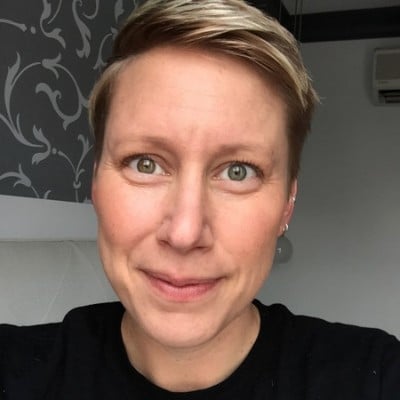Log in or create a free Rosenverse account to watch this video.
Log in Create free account100s of community videos are available to free members. Conference talks are generally available to Gold members.
Summary
Objectives and Key Results (OKRs) are a staple of Q1 goal setting, but how helpful are OKRs to achieving your team's goals? Are they agile: do they stay relevant in a constantly shifting new normal, or does the process of getting to mutually agreed OKRs suck the innovation out of a team? Join Bria Alexander, DesignOps 2022 curator, in conversation with Design Operations leaders Benson Low, Natalya Pemberton, and Stephanie Goldthorpe to discuss the help (or the harm) in setting OKRs.
Key Insights
-
•
OKRs are most effective when teams feel ownership and connection to strategic objectives.
-
•
Top-down, rigid OKR mandates can demotivate junior engineers and harm culture.
-
•
OKRs foster cross-team communication by highlighting dependencies and alignment needs.
-
•
Language used in OKRs matters; making objectives user-centric increases engagement.
-
•
OKRs should be viewed as iterative processes, allowing pivots and learning rather than fixed targets.
-
•
Accessibility is a powerful, tangible key result that can unify diverse teams around a minimum standard.
-
•
Measuring OKRs can include qualitative milestones and quantitative metrics, tailored to the objective.
-
•
Alternatives to OKRs exist but OKRs remain popular because they provide a structured way to align efforts.
-
•
Splitting OKRs for product outcomes and design org growth helps maintain clarity and focus.
-
•
OKRs should complement, not replace, evergreen mission and vision statements that change less frequently.
Notable Quotes
"The positive experiences come when teams are connected to real strategic missions and feel empowered to deliver key results."
"Junior engineers often feel like OKRs are overhead and ask for things beyond their pay grade."
"OKRs create new conversations about interdependencies that hadn’t been had before."
"Language is so critical; are these objectives user-centric or just focused on business metrics?"
"OKRs are both a goal-setting tool and a mindset that encourages continuous learning and evolution."
"An OKR that everyone can rally around, like accessibility standards, should be a non-negotiable in every product team."
"If you don’t understand how to implement OKRs, don’t assume the process is hidden; ask questions and engage."
"You have to be okay with messiness and mistakes when implementing OKRs the first time."
"OKRs might not be the solution for everyone or every org; you need to decide based on your culture and goals."
"The key to doing OKRs right is to keep them connected to how the team actually works and to allow room for negotiation and empathy."
Or choose a question:
















More Videos
"You’re born on third base but think you hit a triple — that’s the enterprise software delusion."
Standardizing Product Merits for Leaders, Designers, and Everyone
June 15, 2018

"There’s no such thing as one-size-fits-all methods; what works in one part of the map doesn’t work in another."
Simon WardleyMaps and Topographical Intelligence (Videoconference)
January 31, 2019

"There’s a gap between intentions and impact; humility is needed to close it."
Sandra CamachoCreating More Bias-Proof Designs
January 22, 2025

"We’re all capable of creating and perpetuating toxic work relationships."
Darian DavisLessons from a Toxic Work Relationship
January 8, 2024

"We mitigated data privacy risks by subscribing to the corporate plan for ChatGPT, which offers enhanced security."
Fisayo Osilaja[Demo] The AI edge: From researcher to strategist
June 4, 2024

"Empowering maker culture invites everyone to be part of a collective endeavor far beyond any individual."
Uday GajendarThe Wicked Craft of Enterprise UX
May 13, 2015

"There is no design team responsible for the overarching experience across the entire company."
Davis Neable Guy SegalHow to Drive a Design Project When you Don’t Have a Design Team
June 10, 2021

"If you come with a big idea, they’ll try to dial you back to the smallest iota you can test first."
Eniola OluwoleLessons From the DesignOps Journey of the World's Largest Travel Site
October 24, 2019

"Product managers feel design is a black box; they want visibility, transparency, and accountability on timelines."
Aurobinda Pradhan Shashank DeshpandeIntroduction to Collaborative DesignOps using Cubyts
September 9, 2022



















